A Chapter by Chapter Review of Puja Changoiwala’s Book
Chapter 1: The Opening
Like a true grandmaster Puja Changoiwala’s crime novel Front Page Murders, based on the serial killings in Mumbai that shocked India, catches you early on from chapter one. Like a game of chess, the pawn moves first on the chess board like in a grand opening. The writer establishes her character from the start as we are being narrated the story through her eyes, the Sutra Dhar, as it were. We are taken to the day when the story is first reported by the police. The opening chapter is graphic in its portrayal of the crime. The heinous and continuous stabbing of Arun Tikku as he struggled for his life beating the window pane. We are instantly given a peek into the world of a Hindustan Times crime reporter and how they start their beat and plan out a story. Yes, Arun Tikku has been murdered, stabbed multiple times in the chest and stomach with a wire cord tied to his neck. The cops are away in search of the perpetrators and son of the deceased, a Bollywood actor, Anuj Tikku, who is missing. The guards and an informer cop spill some of the beans of the story. This is when Inspector Rupwate enters the scene and tells the reporter that Arun Tikku was a businessman from Delhi and had come to see his son Anuj. The man who saw the old man struggle for his life from the car park explains the rest. Even the paying guests who Anuj had kept in his flat have disappeared. Walah, the crime scene is set up when the cops start going through clues. They find Anuj’s passport, a PAN card and most of all, an SUV parked outside the apartment.

The opening chapter is racy and builds the tension from the beginning as reporter Puja starts to file her story. She is sure that this one is a front page story and she has the opening advantage as she pursues her sources, at the same time, protecting them. The ways that the reporters camouflage themselves to enter the building are some of the tricks she uses. The affluence of the building society and that the old man was rich is established in the first few pages. The pieces have begun to move as the chess players begin to make theirs. So we have Bollywood, Lokhandwala Mumbai and a gruesome crime. The squares of the chessboard are heating up. The writer doesn’t back down. She is great with her mobile phone who knows how to dodge people and even camouflage herself.
Chapter 2: The Blitz
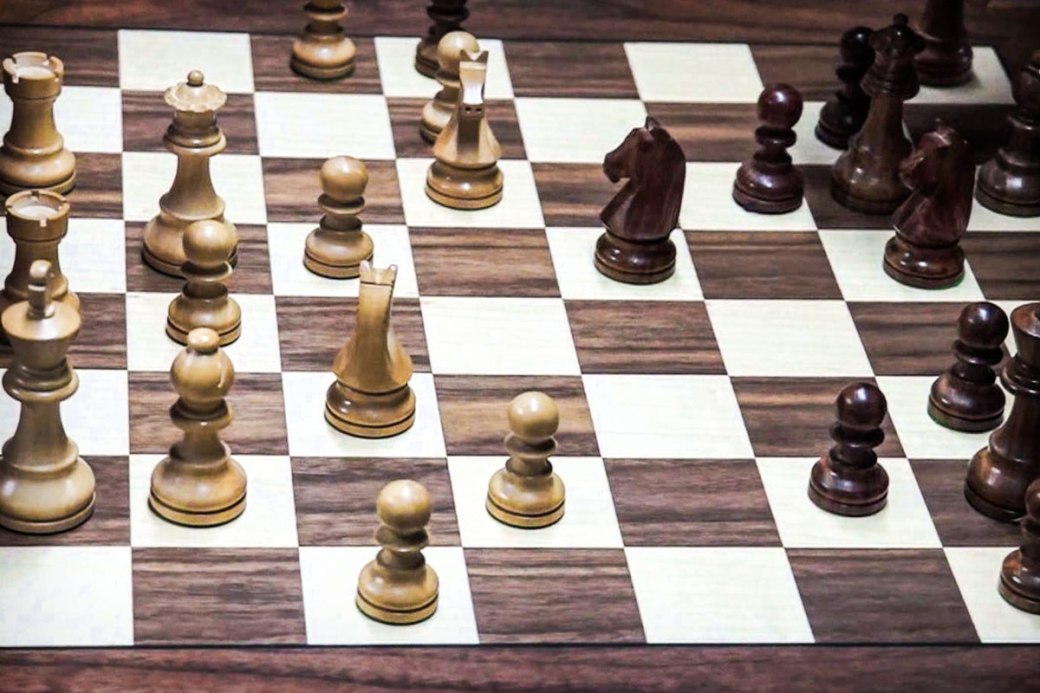
Like a chess game, the next chapter is The Blitz, the highlight being the actual brutality of the murder word-by-word graphically portraying the crime itself. 19 stab wounds in the stomach and abdomen on Arun Tikku. But the worst was yet to come as we are taken into this hell and we are told that he lived through this ordeal only to die when every drop of blood was taken out of his veins. His head smashed as he took on his killers with his bare hands and sheer will to live. He managed to get the curtain to fall and banged the window gasping and shrieking for help. It is here that we get to know the background of the victim and that of Anuj, the son who had gone missing. We are given a peek on the personality of Anuj, his drug addiction, mental instability and broken marriage. Arun, on the other hand, is the perfect dad. He was a wealthy, hardworking and a true family man who worked until his death. Chalk and cheese like the white and black pieces of a chessboard, the father and son were a contrast and they had an argument. Theories flew past that the son paid the paying guest to murder the father. Here, we see the author trying to establish motives, the story has been reported in the tabloids, but the police are still not telling the truth about the motive.

Enter the Wazir Vijay Palande, aka Karan Sood, a friend of Anuj who would frequent him. The cops were busy sniffing out the murders and the journalists were gossiping, smoking and drinking tea outside the Oshiwara police station. We are taken in the thick of crime reporting world, sources being tapped, lies being told, theories being propagated and crazy bosses calling for the great scoop of the day. It’s all in there for you to absorb but you can’t as the pace of the book keeps you gripped. We have movies, drugs and a murder, the story is page one indeed. We see how the police work to trace the SUV to its owner, Karan Sood, and how they are still not revealing the truth about Anuj and his whereabouts. As readers, we are told that crime was pre-meditated as bottles of phenyl, plastic bags and suitcases were unearned from the scene of the crime. Anuj is now part of the conspiracy theory which is splashed on T.V and print. But the most important question of all, who is Vijay Palande? Why does he have dual identities? Man, my head starts to spin. In a game of chess, this would be the Fianchetto.
Chapter 3: The Knight

This chapter belongs to police commissioner Himanshu Roy of crime branch who walks in like Bhishma and takes us through the what, who, when, where and why of the murder case. The police called a press conference and declared the murder solved. The identities of the criminals are revealed. Vijay Palande aka Karan Sood is the mastermind. He along with his associates, Manoj and Dharanjay, hatched a plot to grab actor Anuj’s three-crore apartment. We have the motive and the criminals who are connected to underworld gangster Santosh Shetty. The queen’s gambit here is the entry of Simran Sood, a model who introduced Anuj to Palande. Anuj, however, is alive and is being questioned. The author paints the picture and the feel of Mumbai police headquarters, and the buzz during and after the conference. In fact, the entire media circus around the story was explained in great detail.
This also is the entry of Anuj as he looks dishevelled and tired from mourning the loss of his murdered father. Journalists were all fighting to get a bite from him as he repeatedly said, “I got to know about the murder of my father only when I reached Mumbai from Chiplun. The friend who informed his father about him being in bad company was actually Mithilesh Tiwari who was also a very close friend of Anuj’s and his partner in the media company Mind Bubbles Creative. (This is, however, not mentioned in the book.)
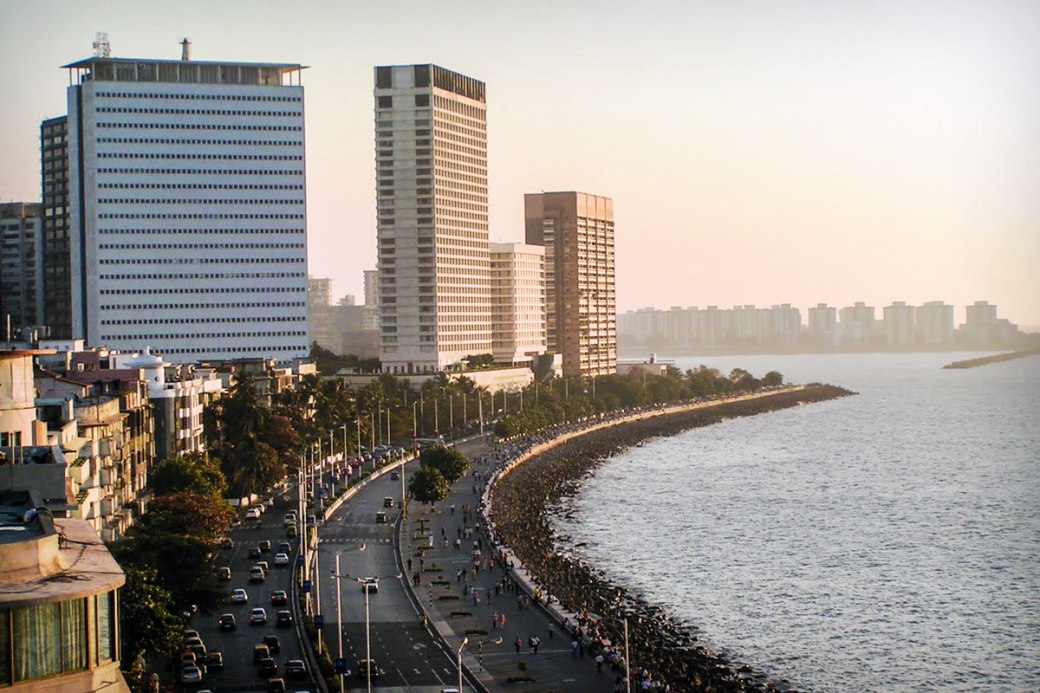
So drugs, sex, rock and roll, underworld and a murder. Rest assured, this will remain a front page news for some time. A pan chewing policeman spills the beans by telling us Anuj is mentally unstable and a bit slow. He was gullible enough to rent his apartment through Palande and his aides to a German woman from the foreign council. So now a foreign national also was involved. This case was spinning out of hand. We have the motive now. They wanted to grab Anuj’s flat, kill him and take over his wealth. Enter Arun Tikku, at the last moment, and he ends up paying for it with his life. The honey trap has been established and the game of chess is warming up. As readers, we have started getting the answers to some of our questions. The criminals are intelligent and smart, even ruthless and cocksure of themselves. As you get ready to close the chapter, another bombshell drops. Vijay Palande has escaped from police custody. “What next?” you ask, as one tries to dive into the mind of the author. But till then, a pause. One must wait. Man, I can’t put this book down, not even for a minute.
Chapter 4: The Bishop on the Run

Vijay Palande has managed to escape from police custody and the media is abuzz with news that makes the Mumbai police feel like they have been hit by eggs on their face. The media demands an explanation but none comes their way as the police are busy trying to capture him again. Palande is nabbed at church gate after a massive naka bandi and police patrol operation. He, as we were told, was trying to flee to Bangkok. The crime branch unit eight is abuzz as his recapture is widely reported. Here again, the author is astute when she portrays how anchors in TV news act out their role for the camera and how the journalists cross questions and demand answers from the police. The desperation of the cops is obvious. Palande is interviewed and in return, blames Anuj to be the mastermind.

Amongst all this commotion, the final piece of the missing jigsaw piece is unearthed in Palande’s bank locker, a suicide note written by Anuj himself which was a master stroke from Palande. That jigsaw piece was now going to be the most damning piece of evidence against him and a living proof of his deviousness and cunningness.
The author, in great detail, takes us to the methods applied by the Mumbai police when they interrogate criminals. The torture techniques they use include verbal assault, physical assault, reverse psychology and essential oils. My favourite is the conveyor belt that is used to beat the criminals. It has a metal buckle which tears at the skin and is very painful. On the buckle are engraved the words “Satya Bol” meaning ‘speak the truth’. But what’s more important is that the wazir is back in police custody.
Chapter 5: The Pawns

The character sketches and violent backgrounds of Vijay Palande’s henchmen, Manoj and Dhananjay Shinde, is given to the reader. Manoj was a juvenile offender and Dhananjay had been convicted of a murder and was also known for his maniacal outburst. We even get a view from their families. But in the bigger image, both are just pawns who were mentored and nurtured by Palande. He showed them the way to money and riches, and took them under his wings. Dhananjay even went to Bangkok to work for don Santosh Shetty. Both these guys are past offenders having criminal backgrounds along with thirst, willingness and experience of killing other human beings.
Palande, on the other hand, was smooth and showed that he was in control. He egged his men to let him do the talking. He made a scuffle at the magistrate court and showed foresight as he threw his black veil in front of the TV cameras and journalists while shouting that he was being framed by the cops. This was no ordinary criminal. All his moves were calculated and planned. He spoke with confidence and explained his position. Here again, the author has neatly re-crafted the scene inside the magistrates’ court. One can almost feel the slowness and ordinariness of the whole place. The noisy typewriters, dusty files and the confused audience all paint an apt picture of what things actually look like in our courts. It’s as if time never moves in these kind of places.

Still, a lot of chess pieces looked scattered around and there were questions to be answered. How did Palande know so many policemen directly? Why wasn’t he handcuffed? Did the police let him escape? Did they want him to escape? It was as if a light bulb flashed in front of my eyes when I realised that Palande was a police informer.
Each of the accused gives their own versions of the story. Palande said that he was always in constant touch with the police and was not in the city, thus, making him wrongly accused. Dhananjay made a confession that he assaulted and murdered Mr. Arun Tikku in a rage after consuming alcohol. They were just the pawns performing their duty for their master.
Chapter 6: The Rooks

This is the introduction of Gautam Vora, a playboy page-three lover boy, who ran a successful investment brokerage firm. Vora’s character is established as we delve into his model lusting past and his involvement in the model Viveka Babajee suicide case. He is back in the limelight and this time, for his involvement with Simran Sood. He played his role in trying to assist Vijay Palande to escape to Thailand. Vora claimed his innocence but is arrested two years later for obstructing justice. Even his affair with Simran stands exposed as he made 1700 calls to her before the murder of Arun Tikku.
Anuj, on the other hand, mourns his father and writes a poem “Yes Sir, I Killed My Dad.” to overcome his grief. He is puzzled and baffled as to why someone would do such a thing to his father. He is totally lost and devastated. The author brings the pain of Anuj at the forefront of this chapter when he confronts Palande about the murder of his father.

There is an interesting comparison of Palande’s coolness and intelligence. A cop even compares him with the dreaded serial killer Psycho Raman. We see the calm manner and seductive speech of Palande when he tries to do a barter deal with Inspector Bharti. He promises to give them Chhota Rajan in exchange for letting him go. Yes, Vijay Palande was also a police informer.
The author takes us into the world of the Mumbai underworld, the role of the khabris and how informants give vital information about the underworld to the police in exchange for money, favours, to extract revenge or just to get in their good books. They are called the zeroes and they have also been, at times, hunted by the underworld dons. We are told that a khabri is a criminal who gets protection from the cops in exchange of information they pass.
Chapter 7: En Passant

Here, the journalistic abilities of Puja Changoiwala come to the forefront as she digs deep into her sources in the police and legal system to unearth a startling fact. There has probably been another murder of an aspiring film producer Karan Kakad. Sipping endless cups of tea while chatting to cops to persuading them to divulge information and state facts, this journalist from Hindustan Times is a master. She jibes, jokes, smooth talks and cajoles information out of the police. We get to delve into the character of Simran Sood and learn about her expensive tastes and clothing business.
What’s clear is that wealth and money are the motives for the murders as Karan Kakad’s brother, Hanif, gives police a list of missing jewellery, cards and a BMW. Paland’s modus operandi is simple: identify rich individuals living alone who are aspiring to make it in Bollywood. First befriend them through his honeytrap Simran and then, when he has won their confidence, kill them brutally and then hack and dump the bodies in the ghats. Finally, the plan is to flee with the belongings and money of their victims. The hunt for Karan is on as he is still missing. It begins to dawn on the press that this guy, Palande, is a serial killer just like the thugs of yesteryears.

What’s even more intriguing is that there is a rat in the police force who is protecting and passing information to Palande. This and him being a police informer explains why he was so confident that he would succeed. The dusty offices of the police stations of Oshiwara and Amboli are vividly portrayed in the book. This coupled with press room drama formed the backbone of this chapter.
Chapter 8: The Queen
This is when the action moves to the Amboli police station where hordes of TV journalists, OB vans and reporters are perched waiting for the next development of the story. TV anchors show off their tricks of the trade. Journalists in deep conversations, sometimes hilarious, sometimes sad, form the background of the novel. They are like the never ending shadows in the book. Analysing, discussing and even debating the murders get to the essence of the story. I guess this type of sieving is required if one has to get to the truth.

The chapter explodes with the arrest of Simran Sood who is being connected with both the murders. She is being labelled as a femme fatale, like a gangster’s moll as Anuj said.
‘A crass version of Uma Thurman.’ Here, she too has another identity that of a Seema Dosaj who came from Chandigarh as part of a dance group and never returned from the city. Her past and her relationship with Palande and his family also take centrefold.

Palande claims he has four wives as he has also married the German council lady Nevis Leginza. “I manage all four wives. You see, four wives in four different time zones. When you are making love to one, the other three are sleeping.” His tone is unrepentant, cocky and full of black humour.
Amboli police are abuzz with rumours and allegations and everyone is debating the relationship of Palande and Simran. Karan Kakad’s family answer the questions of the reporters and provide the hard evidence that they have collected. Karan’s credit cards were used by Vijay and Simran in Bangkok and Mumbai. Karan is still missing and his family was fast losing hope but still managed to keep a bold front. The author, very carefully, takes us to the main tragedy of the murders of the victim’s families. What befalls on them are their guilt, pain and the hard-fought legal battle that would follow. Their pain is made evident through some fantastic writing full of compassion for the victims. The frustration of the press and the constant speculation that the police were lying or hiding facts are also depicted. The chess pieces have begun to move on the boards and there is a constant interplay of the various characters as they make moves and counter moves. I can’t wait to lick my fingers and turn the page to the next chapter.
Chapter 9: The Middle Game

Things really begin to reach the boiling point as the press hears the involvement of model Roslyn Khan in the murder case. Simran told the cops that she would know where Karan Kakad was as she was his girlfriend. She was being questioned as the journalist scuffled and pushed to get a glimpse of her conversation with the cops. The news of ill-treatment by the police towards Kakad’s family and their lack of interest in following up on Karan’s missing persons report cleared the way that a cop was helping the Bonnie and Clyde couple from the inside. We see the drama unfold from the eyes of Puja Changoiwala as she taps her contacts, sources and leads to get the latest development and, of course, the constant buzz of journalists having intense regular conversations with each other. People showed their disgust in the slack work of the police. Arun Tikku could have been saved had Karan’s investigation been done in a forthright manner.
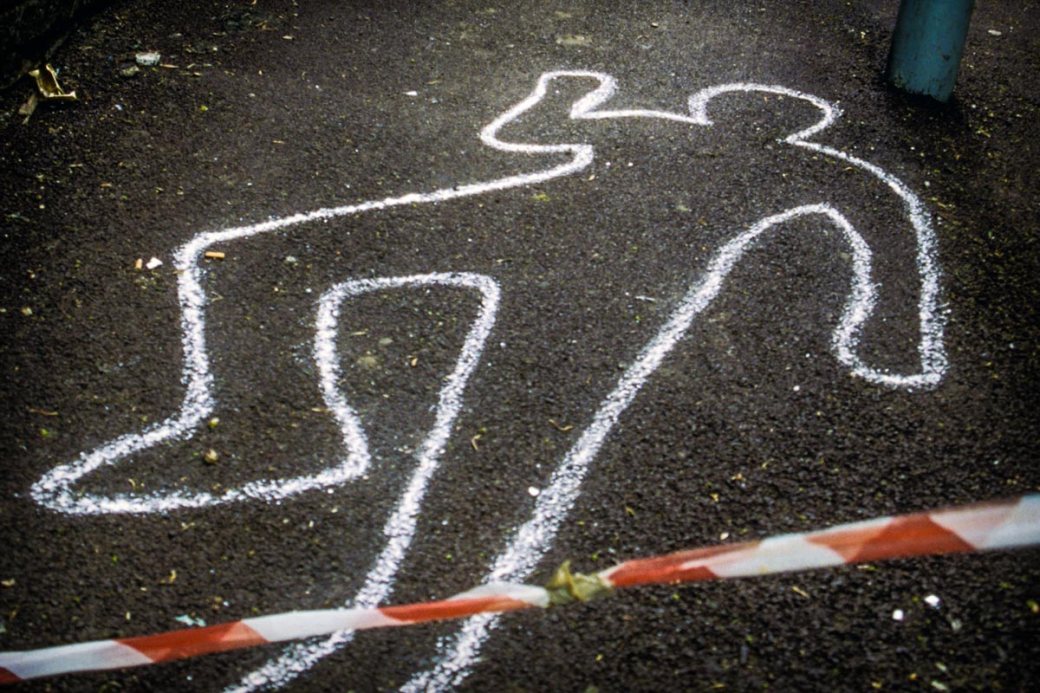
The cobwebs begin to fall out of the closet as cops reveal forged passport, documents and identity proofs. The rampaging Bonnie and Clyde of Mumbai had forged documents to even rent their apartment in Oberoi Springs. The chapter gets racy as Palande’s other crimes come to the front. This guy was a real artist. Nothing about him was true. His calculations were extraordinary. He hid Karan’s mobile phone in a train’s toilet. He had all the trademarks of a hardened and a vicious mind. The way he executed his plans and the way he stonewalled the police, who got increasingly frustrated by following his false leads, all add to the intense drama. The temperature soared in the police station rooms and cabins. This was underworld and Bollywood yet again, but this time, the criminals were brutal and cold blooded. The story keeps on going and the tabloids were having a field day delivering one headline after the other adding to the existing media circus.
Chapter 10: The Domino Effect
As if in the midst of a domino effect, stories after stories abound the press with rumours of Simran photographed with celebrities like K.K. Menon and cricket players at page three parties. Some said Karan was into cricket betting and Simran was also a facilitator, a type of a social butterfly. The police were working hard to find clues and pursuing leads. They were going nuts looking for Karan Kakad as they are told he is in Pune. But is the man even alive by now?

Another bomb exploded as an actress Meenakshi Thapar has been murdered by her own colleagues. They had severed her head and her body was thrown in a water tank. They did this all for money as the killers had asked her family for ransom. The struggler’s world of Lokhandwala is brought alive by the vivid mastery of the author and her words as she takes us for a walk around the mirky world of Bollywood and crime, and how closely they are connected. A lot is explored about the psychology of the average Bollywood struggler and their unreal world of overconfidence, fake bravado, money problems, and other such insecurities. The most hilarious being the ‘C for chutiya’ joke that a journalist made in response to a live commentary that a TV news anchor was giving. It the domino effect where the underbelly of Bollywood is split wide open to see the rot, the sewer, the filth, the immorality and the mindless ambition laid out for the world to see. Everyone wants fame and money and here, they will achieve it by extracting blood. Ethics can take a flying fuck. As lines between right and wrong merge, one does not know which is which. Like a tightly connected fishing net, all ends are tied up to all other ends.

All the while, the journalist was running from Amboli to unit nine office in Bandra. The irritation of the cops and the constant jostling of the journalist bring tension and more drama. The journalist puts pressure on the cops to find out more. On the other hand, over gear media bosses coax their reporters to get the first exclusive as deadlines keep moving ahead for the late edition.
Chapter 11: Killer Killer

As if the author hadn’t enough, my thoughts swirled around and around processing all the information I had just read. We are now taken into the mind of Palande and what makes a serial killer. Karan Kakkad has been hacked up into pieces with his throat slit and his body parts thrown in the ghats. These guys are cooler than delivery boys. They kill, cut, pack and dispose their victims and do it for money, for their never ending greed. The author quotes books and psychiatrists who try and explain the difference between organised and disorganised serial killers. Palande, being the organised, his meticulous planning, his foresight, and his homework, all show an intelligent yet deviant mind at work. He is well-read, speaks many languages, stays in a plush apartment and dresses well. He is soft spoken but always in control. His calmness and self-assurance are such that he can sweet talk anyone. That’s how Anuj and Karan fell into his trap. He looks too ordinary, like one of us, so it is impossible to suspect him.
The author here takes us down to the memory lane of some famous western serial killers and some closer to home. We learn about the thug cult who killed travellers and pilgrims for money by strangling them. The book has been well researched by Puja and she peels at the various aspects of serial killers like a chef peels onions. This is darker than dark, this is a nightmare, a bizarre version of Natural Born Killers and it is all unfolding in the background of Mumbai city’s clogged drainage system, noisy traffic and rickety autos. Only a city like this can breed a monster like Palande. He has so much nourishment here. The dreams of unassured and complex strugglers trying to make a mark in Bollywood are his prey and they are everywhere in the city. You need an artist of the calibre of Palande to be able to execute such heinous acts of mind-numbing violence with the calmness and calculations of a surgeon.

All this mayhem amongst the pressure of the deadline and the pressure cooker environment of the journalists are depicted well with great detail by the author.
Chapter 12: Suitcases, Choppers and a Sickle
Now that we know how the murders were executed and carried out, we get a glimpse of the decomposing body of Karan Kakkad in the ravines of the Kumbali Ghat. Palande takes the cops on a wild goose chase but finally leads them to the decomposing body of Karan. The gore, the stench and the misery is evident as the scene gets darker with the body parts of Karan being taken for forensic evidence. We learn about police procedures, processes and how evidence is collected and later, examined. The beautiful natural surroundings of the ghat stand testimony to such a dastardly act. As the decomposed skull of Karan stares at us for answers.

We are carefully taken through the equipment used to slash and then cut the body so that it could be disposed of. Long fearsome chopper blades and large circular sickle were used to tear and slash the flesh. It took Palande and his aid the whole night to chop the body of Karan and put it into bags. These weapons of carnage were carefully hidden at Palande’s various flats in the city. The author doesn’t hold back as she talks about the and mutilation. It is there for all to see in all its glory and shock value. Flesh, skull, human blood and bones. Man, it looked like one was in the middle of an Aghori cult. On the other side of the mayhem, the glassy composed eyes of Palande gave nothing away. He was a man with a heart of stone and the nerve of steel. It takes more than a steady pair of hands. It takes a cold heart to chop someone in a tub like this. But it has happened and the ghats bore testimony to that fact.
Chapter 13: Tasting Blood

This entire chapter is dedicated to Palande’s first murders in 1998 when he was a novice criminal. These are told by the cop who apprehended him. He befriended his victims Anup Das and Swaraj Ranjan Das with his motive being money. He had an eye on their Juhu apartment. Here too, he used Simran to bait Anup and became part of his family. She even touched Ms. Das’s feet and called her mother. I know this routine of his so well. Simran touched my father’s feet also. The two of them have a perfect script written out. Then, they murdered both father and son in the same brutal manner as they killed Kakkad and Arun Tikku. After feeding sleeping pills to Anup, they hacked him to death and burned the bodies with petrol. The charred skulls and decomposing bodies bore testimony to the gore and gruesome nature of their crime.
The pains of Usha Das, Anuj and Karan’s family is very poignantly depicted as they remain with a guilt complex that had they been more careful, their loved ones would still be with them today. Puja Changoiwala has done well to show this aspect of the story and how hard it is for them to carry out their struggle for justice and battle with their fears and inner demons.
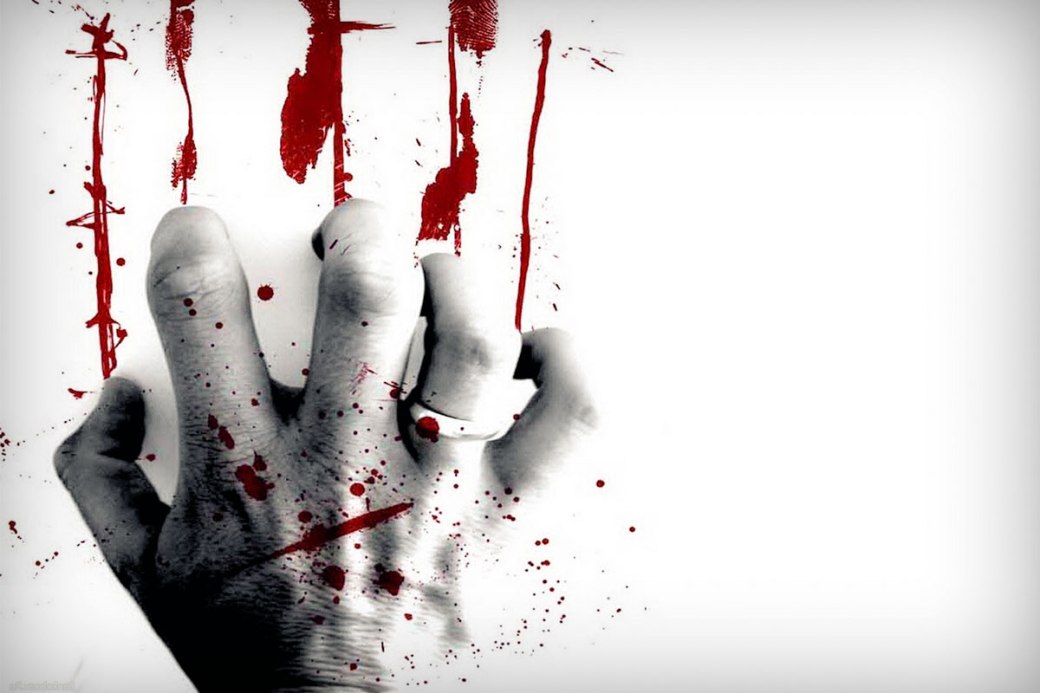
Most of all, we see the beginnings of the evolution of a master criminal who was just honing his skills to cause death and mayhem. He was testing the water, but by 2012, he had become a professional. A cold calculating murderer who murders for material gain and wealth. He has no ideology, no ethics and no God. Maybe this is because he likes to play God. When he is dismembering the body of his victims, he feels he is God. That is Vijay Palande. Adharma has become his very nature and that is why it is important for society to hang him because he will do it again and again unless he is put to sleep forever.
Chapter 14: In the Wazir’s Mind

Vijay Palande and his murdering spree have caused a sensation in the media and everyone is curious to know about him, his background, his past and why he does what he does. The author takes us into the mind and making of the monster. How does he know the law and the lawmakers? How does he preplan his killings and erase clues that often mislead investigators? The author also shines a light on his appetite for other men’s wealth and dismemberment of bodies. His cold emotionless heart and an aptitude to escape the law by changing identities all the time are also detailed by the author. We get a low down on the relationship of Palande and Simran and their love for each other.
My favourite was when he threatens the policemen with a knife when out on parole to see his ailing father. Then he closes the door and has sex with Simran. He, after having fornicated with her, walks out coolly and goes back to jail with the policemen without even once looking at his ailing father. He is a man who enjoys what he does and will do it again and again as it has been proved. He uses the many loopholes of our legal system in such a way that he manages to escape time and again, and this time, nearly did it.

Puja takes us inside prison life and what most prisoners do for sex in jails. If the price is right, most things are available in our jails, from sex to drugs and even mobile phones. Stories of couples lodged in prisons asking for the permission to have sex form an interesting read and gives us insight into the conditions and state of our jails. Guys like Palande use our jails to cool off, to chill out, to meditate and rest before they can hatch a new scheme, find a new victim and butcher another human being. That is why it is so important for men like him to be hanged. He, as well as people like him, are dangerous for our society and will stop at nothing to fulfil their goals and objectives like a professional. “Dhada her par ganda her yeh.” This is an ace criminal with sophistication charm and a honey tied tongue who will smooth talk anyone. Here, we get to know that there was a fifth victim also. Who is the fifth victim and will it stop at that? The chess game moves towards its end game just before we thought the things has come to an end.
Chapter 15: The Endgame
With the power of her pen, Changoiwala tells us how every society deserves the criminals it gets. She throws light on the complacency, loopholes and blatant police support that Palande got over the years. The police, on many occasions, has facilitated him to escape and have also shielded him at times. Indeed, Palande’s days as an informer helped him get close even to the senior cops. The startling discovery of the fifth victim comes to life. The motherfucker used to murder in pairs as he has hacked another man in the tub along with Karan Kakkad. He kills in pairs. First, Anup Das and his son. Then, my father Arun Tikku and me. Remember, he had drugged and made me write my own suicide note. I was just plain lucky that I survived to tell the tale. Just so goddamn lucky! Or is it a way of God telling me that now, I have a purpose even stronger than before to live?

The judicial system and its slow process are also blamed for the fiasco. The author looks at ambition and wealth as the other evils that lead to such tragedies as she analyses the roots of this carriage. Above all, it is us our naivety that makes criminals like Palande. He shamelessly believes he can trick the law again with his arguments and cocky banter trying to show off that he is in it for a fight. He is his own lawyer in most of the cases. The conclusion is, you and I, we made Palande. The author leaves us with questions that we will keep asking ourselves as we keep the book down. The question of morality, justice, human psychology, Bollywood and our fascination for blood. We can’t shed it as we are still consumed by it through our movies, books, magazine, video games and even by our legends and myths like Mahabharata and Ramayana. Doing these brutal acts may not be in our nature but we, as a society, still expose ourselves to brutality every day through stories and mass media. The author gives her verdict and leaves the rest to us to decide.
Why Vijay Palande Must Be Hanged
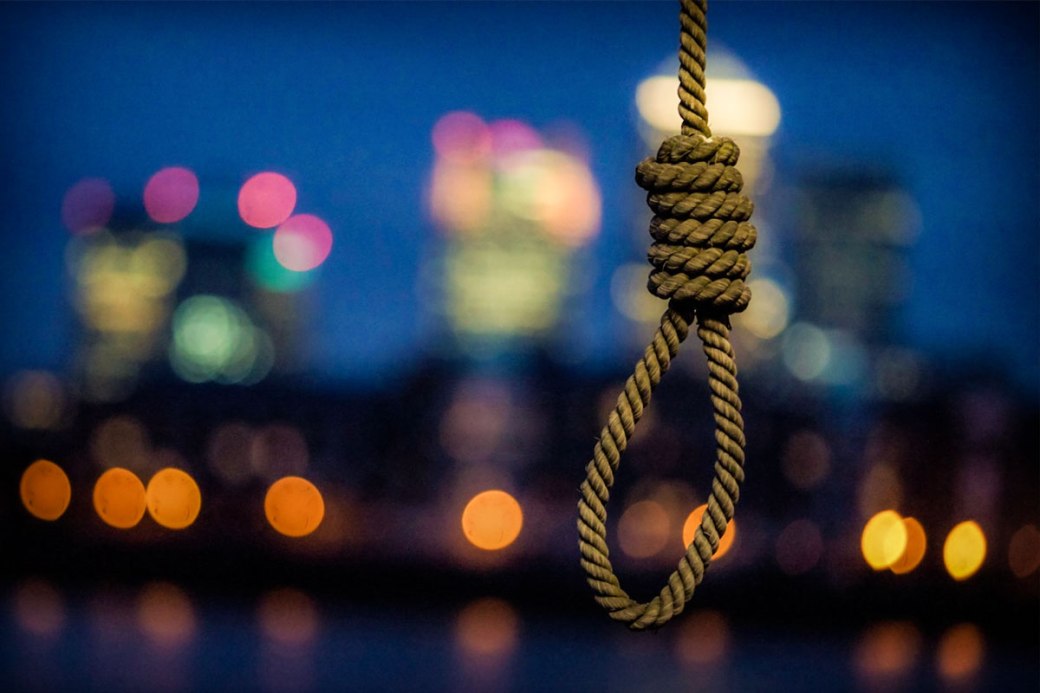
I have grappled with the pain of my father’s death for many years. It has been five years since the incident but his painful death still haunts me. At first, I used to get up at night thinking he was still around me in the room, somewhere on the bed, but then suddenly, the realisation would set in that he is no more. I would break into a cold sweat, fall on my pillow and sob myself to sleep. It took me three months to cry. Yes, after this man had butchered my father, I reached Delhi numbed, confused, baffled and in a state of shock and disarray. I still remember that after my father’s shanti path, I went to my bathroom for a bath and fell on the floor. I went into shock, I mean, my whole body froze. I still remember picking up the bar of soap. It took me two hours to hold it as my hands didn’t move and the soap slipped away every time I tried to grab it. The bathroom tap was on and I just lay in the corner. I finally cried when I opened my father’s cupboard and my letters to him fell out. He used to save all the letters I had written to him right from schools to college. I saw my certificates and CDs he had made of me growing up. I just couldn’t take it and finally, it sank in that he was gone. I howled, wept, cried and begged for forgiveness but he was not there. He was no more and I had to accept it. Many nights, I have spent in cold wonder remembering him and what he used to tell me, how he guided me in life and protected me who was his most precious thing. I blamed myself for getting fooled by Palande and my father having to pay for it. I felt shamed with a deep sense of guilt which is a burden I still carry. My endeavour from then on has been to loosen this burden, through prayers, pujas and travelling. No doubt, the other victims will have their own tales to tell about the horrors of living after you have lost your loved one so violently without remorse as if they were just head counts, just a piece of flesh in a gunny bag. Their deaths so meaningless and so horrible.

I talked to many pundits, lamas, saints and monks trying to find answers for my father’s death and I still grabbed with it. I asked the Krappa Lama in Dharamsala, “Should I ask for the death penalty for my father’s killers?”. He, no doubt, gave me a politically correct answer that I should show compassion and give time to the person to rehabilitate. He told me to maybe ask for life and not a death sentence. But after reading Puja’s book, all of that changed. Palande is a hardened criminal who is sharp, ruthless and has studied law. If he is not contained or put to sleep, he will repeat his crimes again and again and even get better at it. He has shown no remorse and always maintained his innocence. The gruesomeness and cold blooded crimes also tell a story of a man who relishes his job and enjoys its perks. He just does it for money, his own self greed. He is a monster and a criminal. The law must go strict on him now, otherwise, he will escape again and continue his killing spree under some other identity. Our system will not be able to contain him for long if he is kept alive. He will find the loopholes and escape again. He is crazy about his freedom and his fun-filled racy lifestyle. He must be hanged if others are to live.
The Bloody Cast: Why No One Wins

Simran Sood: Currently on bail after spending a year in jail, Simran is often seen wearing a white shalwar kameez. She is accused for conspiring and being a honey trap for Palande. The court has refused to drop charges against her. Her fate, as she is still under trial, is still awaited.
Nives Ligenza: The German wife of Vijay Palande has divorced him and continues to live in Europe. No red corner notice was issued against her. She has divorced Palande and has nothing to do with him.
Dharanjay Shinde: Lodged in Arthur Road prison, his family is not aware of his homicide allegation. He could not attend his father’s funeral and shaved his head in jail.
Manoj Gajakosh: Still under trial in Arthur Road prison. His mother comes to visit him in jail and still claims her son is a very good boy.
Gautam Vora: The stock broker is out on bail but the police have pressed charges against him for sheltering Palande.
Santosh Shetty: Charged under MCOCA, Mumbai police believe that Palande was a close associate of Shetty which Shetty’s lawyers have denied.
Usha Das: Still lives in Andheri with her son. She still holds years of heartache in her eyes and is petrified of the serial killer.
Anuj Tikku: Anuj gave up his Bollywood dreams to live with his grandparents. His efforts are rooted in travelling, writing his blog and poetry. He still carries the scars of losing his father and is still searching for answers and meaning in life. He is surprised that he survived by trying to find a meaning of this new gift of life that was given by chance, fate or luck. There must be a greater meaning to this.
Harish Kakkad: He has moved to Ludhiana with his mother. They still mourn Karan and are not able to get the remains of Karan as it still remains in red tape, their agony doubled by a slow and inept system.
What The Book Does Not Tell You

Puja Changoiwala’s book is well researched and so it should be to bring alive such a tragedy. She, all along, is corroborating her facts and getting her sources to talk to get to the truth. The various murders and the subsequent police investigations have been portrayed in great detail and with a no-holds-barred attitude. Even the language and swear words we use commonly have been extensively used. Through personal interviews, files, papers and sources, she paints an accurate and vivid picture of the first 21 days of the murders and the media frenzy surrounding it. But from my perspective, there are some things missing.
For instead, there is a famous line I use when I would do cocaine with Vijay Palande. I would look at him and, with enthusiasm, say “Aaj kuch toofani karte hein” from the bylines of the Thumbs Up ad. Whenever I was with him, either watching the Filmfare awards on TV or when my ‘No One Killed Jessica’ scene came up, we both clapped and cheered. There would also be a steady flow of cops who would come to see him and have chana and whiskey with him in the drawing room. At times, he would take me around in his Benz and teach me the nuances of the property market. He would meet these cops at night and, also at times, gift them bottles of Whiskey. They loved him and begged for his company over dinner. I just thought he was doing his job as a businessman and keeping them happy.
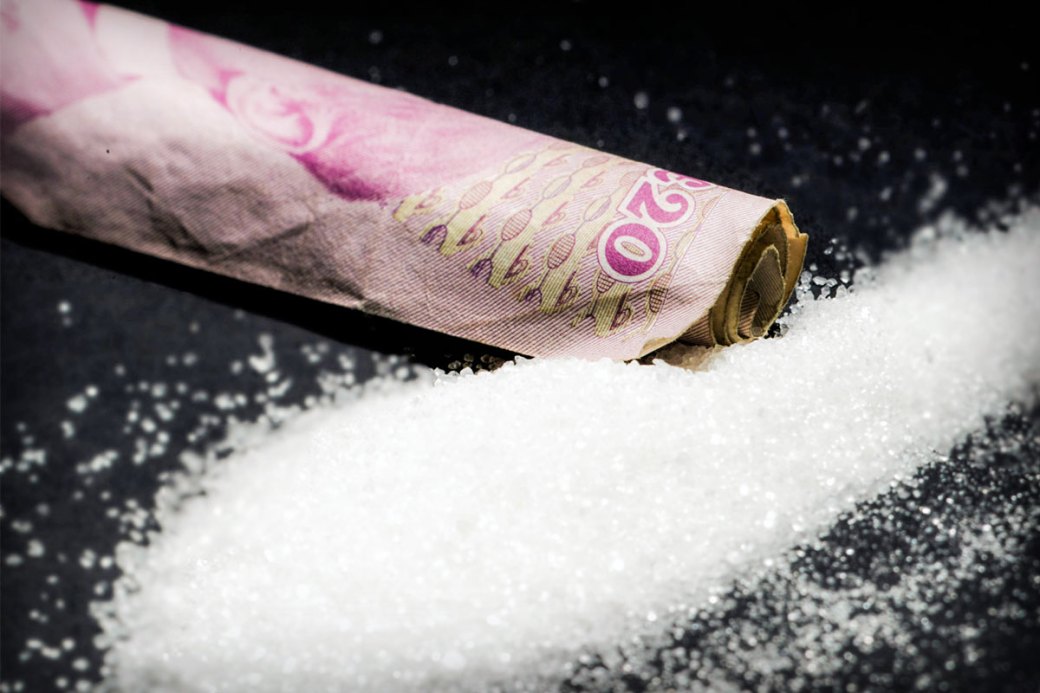
The most startling thing for me were two incidents. One was when I met him the first time through Simran. As I shook his hand, an energy passed through both of us. It was like fate was taking me through a new portal. It was an instant connect and was so obvious and natural that even he felt it. There was no way he could fake the feeling of excitement when he met me for the first time. “Ab mujhe lag ta hein ki uske agey us waqht oska Kaal khada tha aur merey aagey mera.” It is an irony now that my suicide note and I are the key witness and pieces of evidence against him. I will get a chance to be a nail in his coffin and I am relishing the chance to do that and have my revenge.
The second is that he had been constantly mixing stuff in my beer. I used to vomit and puke after having only half a bottle of Kingfisher and I knew I could handle my drink. It is not usually so easy for me to vomit after having booze. I vomited again when he gave me beer in the Chiplun farmhouse the first evening when we arrived there. I puked again but, at that time, I did not realise that he was trying to drug me. Fortunately, my system was rejecting whatever he had put in the beer. The second day, after he left for Mumbai, he said that we might have been caught for taking cocaine and that he would just go and settle it with the cops. Till then, I should have pork masala and rice and sleep over. I wandered into his room next afternoon when he did not return. I saw a photo of his when he was only a teenager. As I looked at it, the photo fell to the floor and the glass frame was smashed into pieces. There was no wind or animal that made the photo frame fall. It just fell and broke as if on its own accord. Mind you, by this time, the whole of Mumbai came to know that my father was dead and Palande was actually busy trying to save himself and not get captured. Now that I think of it, it was an omen. A very bad omen for Vijay that his killing spree was over and this time, he would be caught for sure. There was no escaping his fate and karma now. A man can run from the law but no one can run from their karma. Not even a monster like Palande. At the back of the recesses of my mind, I now feel, that his fate, if not the system, will lead him to the gallows and to his death.

My friendship with Simran was a superficial one. She used to come to my flat to borrow books and CDs at times. She said she would like to do the interiors of my house but I declined. I have never enveloped with her or even dated her. But yes, we did exchange ideas and talked about our past and about my affairs and work life.
I remember that once I was lying on the bed with her, we kissed a few times. She allowed me that much but then suddenly jumped up saying she was wearing no panties and that we could not go further. She, of course, loved cocaine and slept for hours throughout the day with blinders on her eyes. The bitch was an anorexic whore and a dumb one at that. She was not too strong intellectually nor was she very good with English and her pronunciation was ghati.
Hello, Mein Arun Tikku Bol Raha Hun
Hi, I am Arun Tikku and I want to say something to you all. I left for the heavens five years back and was suddenly taken from amongst you by the most brutal act of murder humanity has ever seen. An act of violence so severe that it would chill anyone’s blood, an act of pure evil that was premediated. I was butchered by two men half my age and double my strength with Korean knives and blades longer than my arms. An old man I am, a heart patient and father of one. I did my duty towards everyone in life, most of all, to my son and my wife who passed away with cancer a few years ago. I kept going after all the challenges and ups and downs of life. I have taken everything on the chin but how could I fight this. I was all alone. It was night. They were strangers to me. They came in uninvited and took me by surprise. I am a fit man for my age as I take 15 rounds of my park every day. I also have a regular job and have seen a lot of the world. My only concern now was for Anuj. But he is not here now to save me from these butchers.

“Son! Son! Help! They are attacking me from the back. They have pushed me to the wall and are beating me. Oh son, help me. Where are you? Someone help! They have long and cold steel knives. Ahh, they are stabbing me. It hurts son, it hurts like hell. But don’t worry, I will fight them. I am taking them head on. Look! I deflected the blows of the big guy. But they are strong and I am old. They are banging my head on the wall. Son, my blood is splashed on the wall as well as on my clothes. I am bleeding, my skin tears, my bones ache. They have now pressed me on the floor and the big guy just keeps stabbing me. Son, I can’t bear it. Help! Help! Help someone! Ah, I managed to pull the curtains down as the pain reached my brain. I banged the window pain. Bang! Bang! Bang! Someone help, I am suffocating. They have got a wire cord around me and are now strangling me. Can’t take the pain. It is too much. Forgive me, son. I tried. I tried. Now, I have no more will to fight. They are just stabbing a piece of meat. Forgive me, son. I am departing without you”. But the pain, the butchery kept going till all the blood in his body ran out and he choked to his death in the most horrible manner, squealing and crying out for his life. He lasted the entire ordeal, he was alive all through the butchery. Try to imagine the pain, just try to imagine it. It is a pain beyond our comprehension and understanding.

“Son, I am in the heavens now with all the puja you did for me. The pain has eased. But don’t let them go, son. I wanted to live, I really did, but now, I am dead and you are all alone. Find yourself a way to live without me. But don’t let my death be meaningless to this world. I am an ordinary man who deserved better. I love you son and you are my most precious. See that my death does not go meaningless. Please, I beg you son for all the pain I have endured so that you could live and flourish.”









